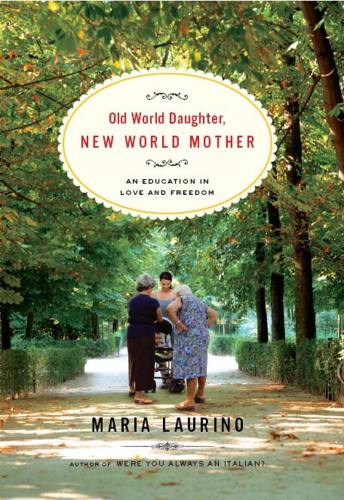
Old World Daughter, New World Mother
An Education in Love and Freedom
- اطلاعات
- نقد و بررسی
- دیدگاه کاربران
نقد و بررسی

February 9, 2009
In a memoir that combines the personal and the political, Laurino (Were You Always an Italian?
) documents her journey from a childhood spent in the company of a traditional Italian family to becoming a mother herself and the many differences between her mother's life and her own. Laurino's mother, a stay-at-home mom, claimed that she was not like the “other mothers”—she didn't drive or participate in the school's PTA; she was superstitious and read omens from dreams into daily life, while keeping an overprotective eye on Laurino and her mentally disabled brother. Laurino's father believed in the power of education and supported Laurino through college, where she pursued her burgeoning interest in the feminist movement. She began her career in the early 1980s at the Village Voice
and later became New York City Mayor David Dinkins's chief speechwriter. As she married and had a child, her worldview expanded to include that of a working mother, and she struggled “to find a comfortable place for myself amid the hum of two dominant, divergent traditions.” Laurino deftly tells her story, while succinctly expressing a feminist's perspective on motherhood and explaining how much further we have to go as a country in order to honor every woman's work.

March 15, 2009
Laurino (Were You Always an Italian?, 2000) examines the internal struggle between her immigrant roots and her yearning for the freedoms of contemporary feminist goals.
The author uses the cultural imprint of her second-generation immigrant family—focusing on the traditional obligations of wife and mother—to set up the personal conflicts she has encountered and continues to process. Envisioning a broader role for herself than that of her mother—the personification of Southern Italian familial devotion, sacrifice and subordination—Laurino spends most of her memoir attempting to define what that role should be. The impetus toward feminist thinking came at Georgetown University, where a distinctly liberal-minded professor introduced her to the nonfiction works of Virginia Woolf. But when professor Jean Kirkpatrick later became the first female ambassador to the United Nations under the highly conservative Reagan administration, Laurino felt a tinge of betrayal. In a man's world, she wondered, must women surrender their true beliefs to realize their ambitions? A career in journalism followed, in which she encountered internecine gender conflicts and outright sexist discrimination at the supposedly progressive Village Voice. The author married and became pregnant, which she had initially delayed because of career priorities. Opposed to hospital delivery, Laurino chose the fashionable Manhattan feminist option, the midwife. But hers failed to diagnose a complication that nearly killed the author. Her hereditary nurturing instincts then surfaced to the point where the pressure to make the"right" choices—where to work, how much, where to live, etc.—became even more daunting. However, if contemporary feminism, in search of economic equality, has"devalu[ed] the act of care [by] asking women to perform in the workplace just like men," she writes,"it will be feminism that lifts us out of these muddy waters."
Scattershot but heartfelt.
(COPYRIGHT (2009) KIRKUS REVIEWS/NIELSEN BUSINESS MEDIA, INC. ALL RIGHTS RESERVED.)

March 1, 2009
From Chaucers ribald Wife of Bath and Virginia Woolfs A Room of Ones Own to the portrayal of Tony Sopranos mother in The Sopranos, academic Laurino looks at womens roles through history, challenging in the processsome feminist orthodoxies about the meaning of independence. She dramatizes the political issues through her personal story, from being raised in a southern Italian immigrant family in New Jersey with a mentally disabled brother through her current effort to balance the childcare of her young son with the demands of her job. Set against the sometimes slow-going discussions of gender sociology is Laurinos wry, witty commentary about her push to assimilate (I made the hyphen in Italian-American into an arrow) and about the pressures of family, food, and fear versus science, freedom, and progress. Along the way, she raises essential identity issues: Is there a healthy side to dependency? Why does this nation of immigrants overglorify rugged individualism and freedom? Does feminism fail mothers and children? Sure to spark discussion.(Reprinted with permission of Booklist, copyright 2009, American Library Association.)




دیدگاه کاربران